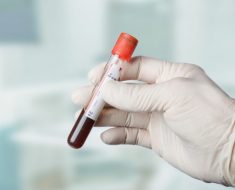
Reducing the transmission of COVID-19 in universities is heavily dependent on vaccination and asymptomatic testing uptake, new research by academics at the University of Bristol has found.
By adapting an existing mathematical model of COVID-19 transmission in universities, researchers were able to show that case numbers can be kept low when a high percentage of students are vaccinated and are using lateral flow testing twice a week.
The study, published on the preprint server medRxiv, was the first of its kind to look at the impact both these factors have on the incidence, scale and timing of COVID-19 outbreaks on campus. It’s hoped the findings will help universities set policies to protect their students and wider university community while minimising any disruption to education.
At low levels of vaccination uptake (30% vaccinated and with no asymptomatic testing) there could be more than twice as many students infected this term as there were in the autumn term of 2020, with 53% to 71% of students infected during the first term.
Under the best-case scenario, where 90% of students are vaccinated and are using a lateral flow test, twice a week, four days apart, this drops to 7 to 9%, with around 80% of these cases estimated to be asymptomatic.
At 30% vaccination uptake, asymptomatic testing is particularly effective and can reduce the number of cases by up to half if 90% of students are participating.
At high levels of vaccination uptake (70% to 90%), the trajectory of the case numbers in the student population is mainly influenced by the level of infection that is circulating in the surrounding community.
The Office for National Statistics reported earlier this month 91% of students have had at least one dose and by late last month, 85% had had two vaccine doses.
Currently, the number of reported COVID-19 cases in students, and in 18 to 22-year-olds, remains one of the lowest levels of all age groups and these observed low levels of infection are consistent with the study’s modelling findings.
Dr. Emily Nixon, Research Associate in the University of Bristol’s School of Biological Sciences and Bristol Veterinary School, who led the study, said: “Our findings highlight the importance of encouraging vaccine uptake and regular testing even without symptoms. These interventions will help institutions set policies to maintain control of COVID-19 and be able to provide uninterrupted education.
“Any students who have not yet been fully vaccinated should take up the opportunity as they could still make a difference to infection transmission. The higher the vaccination uptake, the lower the likelihood of an outbreak, which will help to keep campuses and family and friends safe.”
Waning COVID-19 immunity was not considered as part of the research because the majority of students will have received their first and second doses from June to September 2021, and students who are eligible for boosters will receive their jab by the end of the year.
Source: Read Full Article





